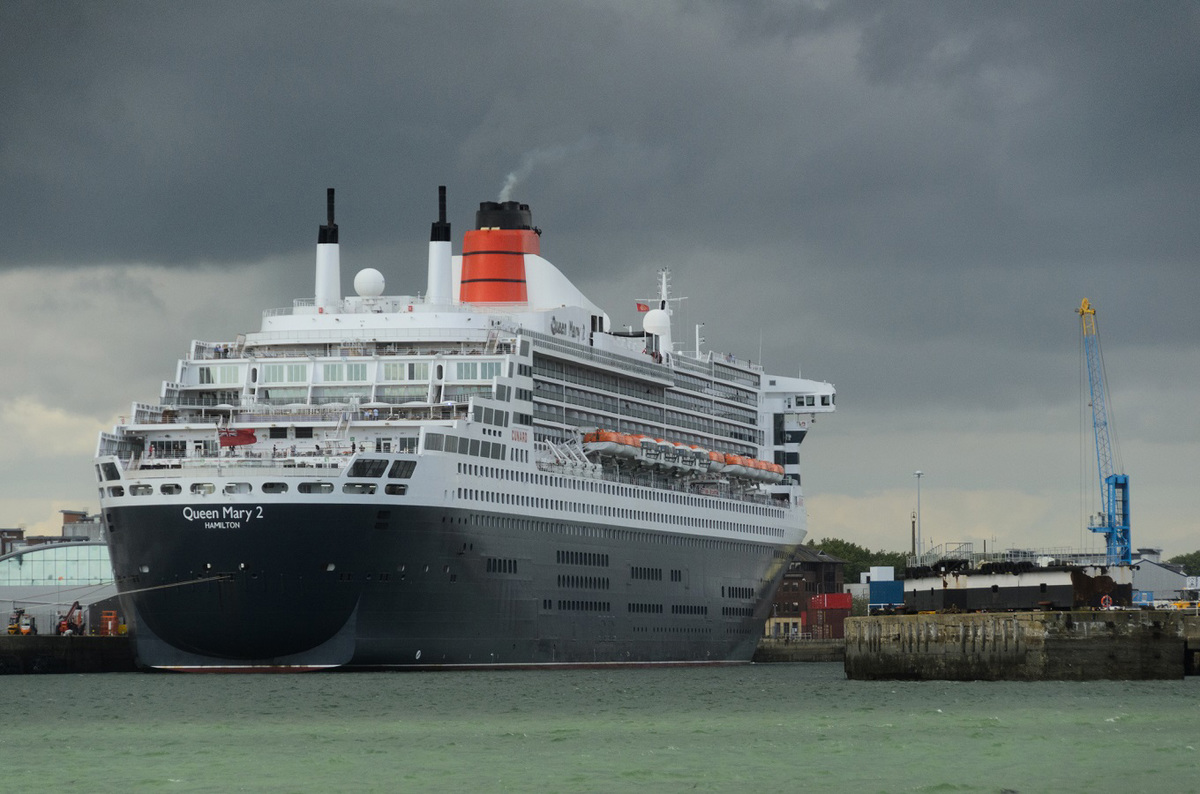Cruise ships favouring diesel over shore power in UK ports - openDemocracy
An investigation conducted by socio-political media outlet openDemocracy revealed that only one in ten cruise ships has plugged into shore power at Southampton, the UK's biggest cruise port, since it became available last year.
 PHOTO: Exhaust gases flow from the funnel of a cruise ship moored at the cruise terminal in Southampton, UK. Getty Images
PHOTO: Exhaust gases flow from the funnel of a cruise ship moored at the cruise terminal in Southampton, UK. Getty Images
Cruise ships visiting the UK ports often fail to utilise the “zero emissions” onshore power while in port and instead burn diesel to meet their energy requirements, openDemocracy stated.
According to Associated British Ports (ABP), an evaluation of ship schedules at Southampton port revealed that between April 2022 and July 2023, there were approximately 300 days when at least one cruise ship was docked. However, during this period, shore power was only used on 71 occasions.
The few ships that did plug into shore power at Southampton, used it only for about five hours per visit on average, despite being berthed at the port for almost 12 hours, the data suggested.
“It’s hard to believe in 2023 that cruise ships are still allowed to sit in our busy port towns pouring poison into the air that people breathe,” environmental organisation Transport and Environment’s (T&E) sustainable shipping manager Jon Hood said.
How readily available is shore power?
According to the Cruise Lines International Association, shore power or cold ironing is available at 32 cruise ports around the world. It can “reduce emissions by up to 98%, depending on the mix of energy sources, while a ship is in port.”
Meanwhile, classification society DNV’s data shows that there are currently 118 facilities across ports worldwide offering shore power to vessels, with 47 more planned and four under discussion.
In fact, shore power has been available at two out of five terminals in Southampton port since April 2022.
So why are cruise ships not using it?
The investigation found that several cruise lines have not yet made the necessary upgrades to their ships to utilise shore power when it is available at the ports.
US-based cruise line Carnival puts shore power connection as a key “environmental feature” of its vessels in its 2022 sustainability report. Yet, Carnival acknowledged that three of its cruise ships - MS Iona, MS Queen Victoria and MS Ventura – which visited Southampton 80 times between May 2022 and February 2023, were not capable of using shore power.
The UK Chamber of Shipping believes that most companies are unwilling to avail onshore power simply because “it costs more than tax-free marine diesel.”
“The current price of electricity is so high that no cruise company is going to use it unless they had to by a mandatory requirement,” UK Chamber of Shipping’s director of policy Peter Aylott said.
How is it impacting?
The failure of cruise ships to utilise shore power has been exacerbating air pollution in Southampton. The investigation quoted a June T&E study that found that “just 45 ships visiting the port produced almost ten times more harmful pollutants than the city’s 93,000 cars combined.”
“One only has to look at the plume of smoke coming up from the cruise liners to see the pollution that is being discharged over our city,” Southampton’s councillor Katherine Barbour said.
What should be done?
T&E’s Hood has accused cruise companies of greenwashing by saying that they “trumpet their use of shore power to seem green” but, fail to do so.
Hood has advocated for a government mandate that requires “cruise ships to plug into shore power when it’s available,” and “as a first step, cruise companies should have to publish when their vessels take shore power, and for how long.”
Southampton councillor Barbour echoed the same sentiment, “If cruise liners are not mandated to change this will continue and our residents will suffer. We need all berths to be able to provide shore power and ships need to be adapted to use it.”
But “at the moment every ship is like a small town, spewing out pollution when they are not using electricity,” Barbour added.
By Tuhin Roy
Please get in touch with comments or additional info to news@engine.online






